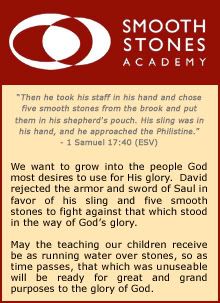We are in our fourth year using the Story of the World series by Susan Wise-Bauer. We have thoroughly enjoyed this introduction to history. The stories have captivated Thatcher's imagination even though we never got to most of the fun projects suggested in the Activity Guide...or the mapwork or the color pages. We simply read the chapters, often listening to them on audio-book, and talked about them when time allowed. In addition I've have always tried to have a book or two to go along with most chapters for additional reading and a few history resource books on the shelf if he wanted to learn still more. And that's been enough to for him to develop a passion for history. He loves it!!!
Each summer I pre-read the volume of SOTW we will be using the upcoming year so I can begin to prepare myself as I didn't learn much of this in my own schooling. After I read, I make a booklist using the SOTW Activity Guide, recommendations from the wonderful moms on The Well-Trained Mind Message Board, my own research on Amazon and other curriculum's booklists (Veritas Press, Sonlight, and Tapesty Of Grace {look at this site,
Bookshelf Central, where you can view/buy all of TOG's books organized neatly by year}).
This past summer began like the others, with reading and making a booklist. I quickly realized, though, that this year would be different. As I began to read Volume 4 I saw immediately that this period of history is tough. Really tough. The reality is horrible events have happened all throughout history but not with such rapid intensity...or within just a few generations of us either. Also this volume seemed very redundant: new ideas lead to revolution and bloodshed which leads to new leadership only to have that leadership become corrupted. This same sequence happens again and again; the basic storyline stays the same but in each chapter it is played out in a different country. SWB addresses both issues (intense period in history plus the redundancy) in the Foreword of Volume 4:
This volume is less evocative than the precious three. I have always tried to tell history as a story, to bring out the color and narrative thread of events. But with this history, I have found myself veering continually toward a more matter-of-fact and less dramatic tone. The events of the twentieth century - the bombing of Hiroshima, the purges of Stalin, to name only two - are dramatic enough. Turned into story, they would be overwhelming.
and
Revolution (a dominant theme of history in this period) shatters the structures; but the men who build the next set of structures haven't conquered the evil that lives in their own hearts. The history of the twentieth century is, again and again, the story of men who fight against tyrants, wind the battle, and then are overwhelmed by the unconquered tyranny in their own souls. (Parenthetical addition mine)
After contemplating different options, I decided I would cover this period in history but condense it. I didn't want to leave anything out but I there are several chapters I didn't want to dwell on either. A simple reading of the chapter would suffice. The chapters that dealt with America's history, I decided, would be our main focus. Plus in the back of my mind I knew at some point I wanted to cover Texas history and this would be the perfect opportunity to do so! We will cover SOTW in 21 weeks and use the remainder of the year to cover state history. So here is our schedule for SOTW 4 as well as the additional reading selections I chose.
Memory Work for this period in history:
1. Gettysburg Address using
this illustrated version of Lincoln's famous speech (also listed in Ch. 5 additional reading list)
2. Order of all 44 US Presidents using
Yo, Millard Fillmore (currently out of print but we found a copy at Half-Price books for $2. It ends with President Clinton but we just made up the remainder of the story to cover Bush and Obama.)
3. I Have a Dream speech (selected portions) using
this illustrated version (also listed in Chapter 36 additional reading list)
Week 1-
Chapter 1: Britain's Empire
Chapter 2: West Against East
Additional Reading(s) -
Week 2-
Chapter 3: British Invasion
Chapter 4: Resurrection and Rebellion
Additional Reading(s) -
Weeks 3 and 4-
Chapter 5: The American Civil War
Additional Reading(s) -
Week 5-
Chapter 6: Two Tries for Freedom
Chapter 7: Two Empires, Three Republics, and One Kingdom
Week 6-
Chapter 8: Becoming Modern
Additional Reading(s)-
Week 7-
Chapter 9: Two More Empires, Two Rebellions
Chapter 10: A Canal to the East and a Very Dry Desert
Week 8-
Chapter 11: The Far Parts of the World
Chapter 12: Unhappy Unions
Chapter 13: The Old-Fashioned Empire and the Red Sultan
Chapter 14: Two Czars and and Two Emperors
Week 9-
Chapter 15: Small Countries with Large Invaders
Week 10-
Chapter 16: The Expanding United States
Additional Reading(s)-
There is redundancy in this list because I couldn't make up my mind (and I was able to get all four books for a fraction of their new book price through either PaperbackSwap or Half-Price books). Now that I have read them all, if I was to just get one I would get Rachel's Journal. It tells most all that the others do but in an engaging first person narrative.
Week 11-
Chapter 17: China's Troubles
Chapter 18: Europe and the Countries Just East
Chapter 19: China, Vietnam and France
Chapter 20: Revolution in the Americas...War in the World
Week 12-
Chapter 21: A Revolution Begins, and the Great War Ends
Chapter 22: National Uprisings
Additional Reading(s) -
Week 13-
Chapter 23: "Peace" and a Man of War
Chapter 24: The King and Il Duce
Week 14-
Chapter 25: Armies in China
Chapter 26: The Great Crash and What Came of It
Additional Reading(s)-
Week 15-
Chapter 27: Civil War and Invasion
Chapter 28: The Second World War
Additional Reading(s)-
This chapter for me covers one of the absolute hardest things we will ever learn in history. I picked several books and will gauge carefully Thatcher's responses to determine exactly how much he needs to be exposed to at this point. For me personally, I learned about WWII in fourth grade and I spent the majority of that year learning everything I could, especially seeking out biographies of children who survived concentration camps. Still, different children have different emotional capabilities and I don't want him to learn too much too fast if his little heart isn't ready quite yet.
Week 16-
Chapter 29: The End of World War
Chapter 30: Partitioned Countries
Chapter 31: Western Bullies and American Money
Week 17-
Chapter 32: Africa and China after WWII
Chapter 33: Communism in Asia
Chapter 34: Dictators in South America and Africa
Week 18-
Chapter 35: The Cold War
Additional Reading(s) -
Week 19-
Chapter 36: Struggles and Assassinations
Additional Reading(s)-
Week 20-
Chapter 37: Two Short Wars and One Long One
Chapter 38: Two Ways of Fighting
Chapter 39: The 1980's in the East and Mideast
Week 21-
Chapter 40: The 1980's in the USSR
Chapter 41: Communism Crumbles-but Survives
Chapter 42: The End of the Twentieth Century
Did I miss any of your family's favorites? If there is a must-read that I have left off, I'd love to add it to the list.






















.jpg)
.jpg)
.jpg)








